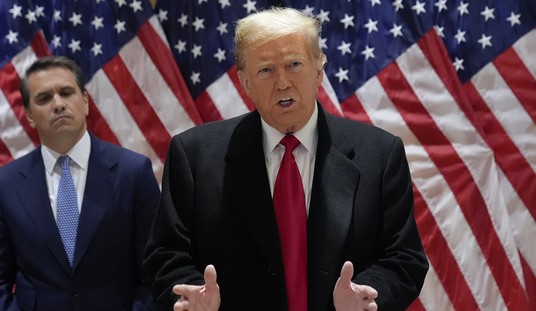“Perhaps one of the most important accomplishments of my administration has been minding my own business.”
— President Calvin Coolidge, shortly after handing over the White House to what would be a succession of busybodies.
Which leads us to this question for the current president’s press secretary:
Here are two (related) questions some reporter should ask Robert Gibbs at the next press briefing: “Is there any aspect of our lives that the President will say is off-limits to federal regulation? Is there anything that he will unequivocally promise not to try to control?”
If they try to control how much sugar I drink in sodas and how college football is played, I can’t think of anything they would not try to control.
And, Orrin Hatch is equally to blame. His role lends credence to the idea that the “old guard” Republicans are equally unprincipled.
But remember, the president isn’t an ideologue! In Commentary, Peter Wehner writes:
Barack Obama’s claim to the GOP lawmakers today — “I am not an ideologue” — calls to mind Richard Nixon’s famous claim, “I am not a crook.” Unfortunately both Messrs. Obama and Nixon were what they claimed they were not. Now being a crook is much worse than being an ideologue; but being an ideologue, especially a liberal one, can have its own high costs, as our 44th president is discovering.
I rather doubt Obama considers himself an ideologue; he has probably convinced himself that he is what he wants to project: an empiricist, a pragmatist, and person who makes decisions based on evidence and reason instead of ideology. The fact that he has pursued an agenda blessed, in almost every instance, by Nancy Pelosi is the oddest of coincidences.
I happen to be glad that Obama met with House Republicans; and if this signals a new way of doing business, more power to him. We’ll see. He certainly deserves the chance to amend his ways. But because Obama is, himself, deeply ideological, I suspect he will be more resistant than most. Yet political reality and political defeats can quickly concentrate the minds of politicians.
I have heard sound bits of Obama in two post-State of the Union settings. There is an almost plaintive quality to the president’s words, at least at several points. He simply doesn’t seem able to process what is happening to him or to deal with the mounting problems he and his party face. For a man beginning his second year in office, he can’t understand why he is the most polarizing president we have seen. Or why his disapproval ratings are at a record high this soon into his presidency. Or why he has lost more support in his first year than any other president in our lifetime. Or why the public is rejecting his agenda almost across the board. Or why the public is rejecting his party in almost every possible case. Or why Democratic lawmakers, themselves, are beginning to break with him. (Hint: it has to do with the fact that the president is, at this stage at least, widely seen as a failure.)
One day, the president is defiant and petulant; the next day, he pleads to be understood and accepted. Barack Obama, a man of limitless self-regard, appears to be struggling with what to say and how to find his way out of the dark and deep woods he finds himself in. Such things can be almost poignant to watch.
But rather painful for the nation to have to live through.
Update: And of course, it’s worth flashing back to FDR’s comments in January of 1944 — when he paradoxically threatened Congress that a postwar return to the era of the comparatively laissez-faire federal government of the 1920s would the equivalent of yielding to “the spirit of fascism here at home.”









Join the conversation as a VIP Member